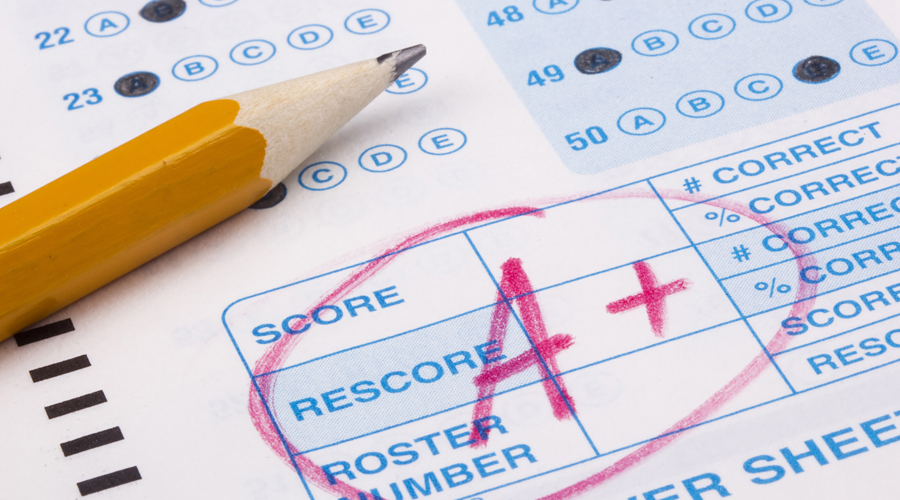Teachers across schools are taking double the time or more to prepare Class X and XII students’ multiple choice question papers, something they have never done before.
The idea is to allow students to score and yet not make it a cakewalk for them because unlike a competitive exam, this is not an elimination test but an assessment.
The challenge for teachers is the absence of a set pattern or a question bank to refer to. They are working out sums to come up with the choices so that the distractors are well thought of and this is a “time-consuming process”, said the head of a school.
Teachers are also having to prepare many more questions.
“If a paper is of 80 marks, the teacher has to set 80 questions as well as ensure that a child is able to finish the paper. I have told my teachers to set papers in such a way that a student would be able to complete each question within a certain time. If they spend more time on one question they will suffer,” said John Stephen, acting principal of La Martiniere for Boys.
The Council for the Indian School Certificate Examinations (CISCE) has said there will be two semesters and an exam at the end of each semester conducted by the council. The exam in November will be online and entirely MCQ-based, the council said.
Several schools are therefore making changes in their own pattern of question papers in the school exam in X and XII to prepare students for November.
Across schools, teachers are investing time to prepare question papers for internal exams, mostly in September, while simultaneously trying to finish the syllabus.
In The Heritage School, for example, teachers have been asked to prepare a question bank — not set a paper — for now.
In St Xavier’s Collegiate School, a group of teachers have been asked to prepare sample MCQs, which will be shared with all the teachers.
“Teachers earlier would take a day to prepare a question paper. But now they are taking four to five days because it involves more research,” said Anil Jha, senior coordinator at The Heritage School.
The director of Modern High School for Girls, Devi Kar, said it was only natural for teachers to take more time than usual.
“It is difficult to set a paper because the teacher has to challenge and stimulate the student,” she said.
“This kind of an exam (MCQ pattern) is about how much the candidate has mastered the concept,” Kar added.
While setting such questions, teachers have to think of students of all kinds — academically stronger ones, average and below average.
“This is an assessment and we have to see that no child gets demotivated. In a subjective paper, while correcting, we try to find the answer in what the student has written but here there is no scope for that,” said Jessica Gomes Surana, principal, Loreto Convent Entally.
“There will be no scope for part marks and a child could also get a zero,” she added.
Father Thamacin Arulappan, principal, St Xavier’s Collegiate School, said for subjects like maths, where the teachers have to work out the sums before setting the paper, it will take even more time.
Teachers across schools are waiting for a sample question paper from the council.
“We have to test both the learning and logical reasoning of a student while helping the child to score. The challenge is the students are not trained to answer and teachers are not trained to ask,” said economics teacher Joeeta Basu.
In an assessment test, the intention mostly is to understand how much a child knows, not what the child does not know. English language teacher and director of Gems Akademia International School, Hilda Peacock said: “The distractors have to be well thought of and the intention is not to trick a child.”
“There will be no scope for selective studies and the entire syllabus will have to be studied,” warned Aruna Gomes, principal, Loreto House.
Schools heads believe that the newness would make it more interesting and challenging, unlike the set pattern that has been followed for years.











